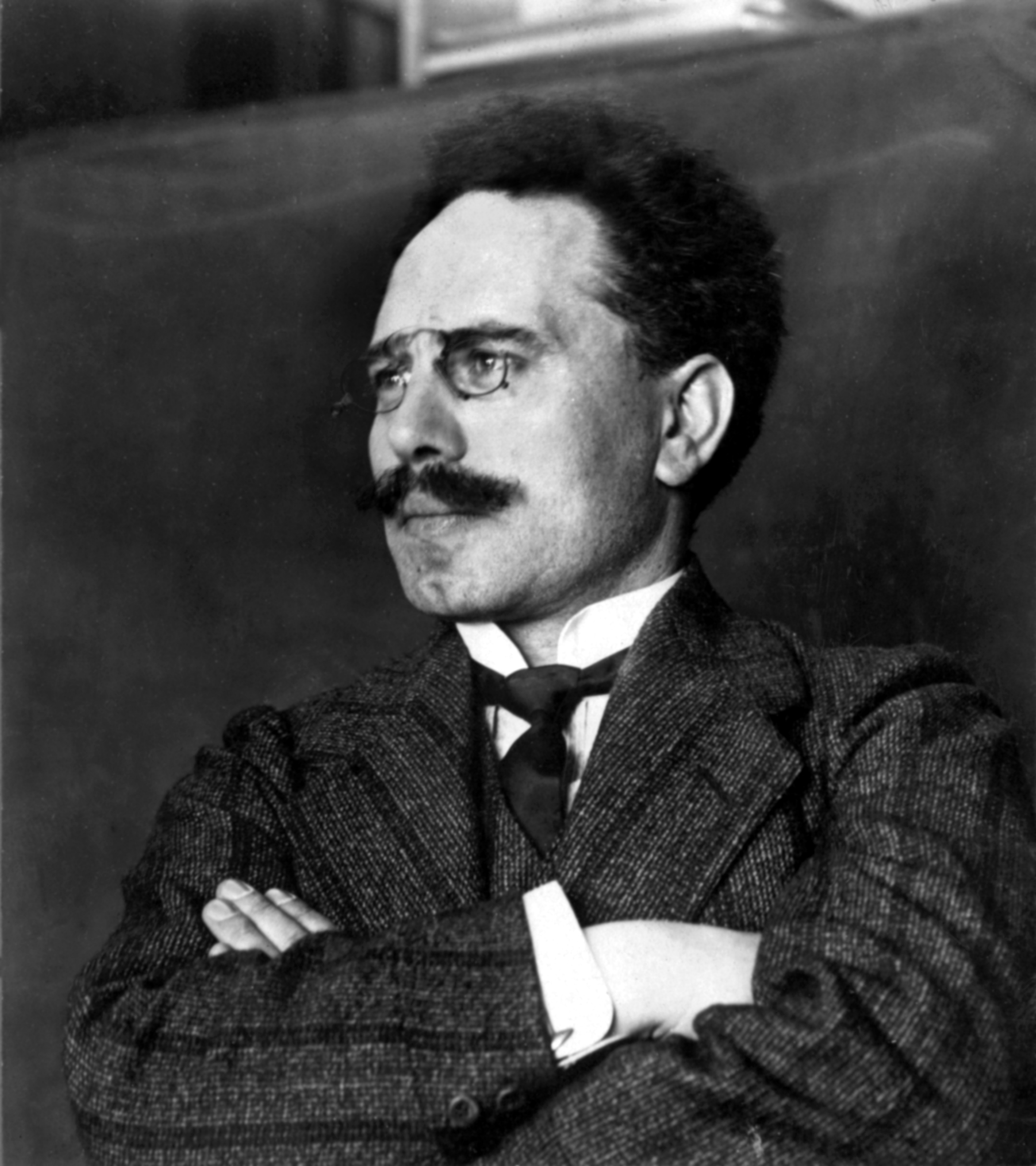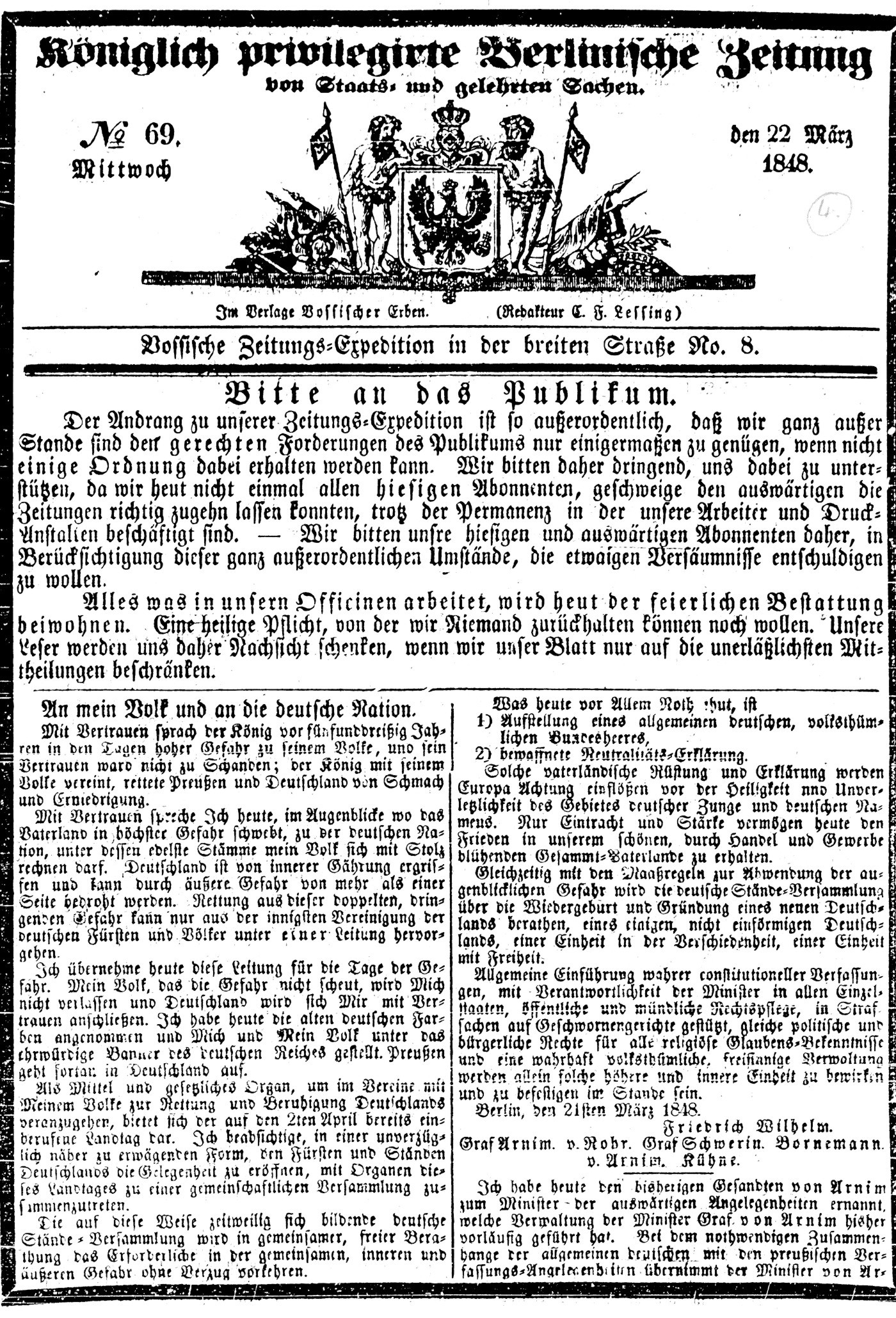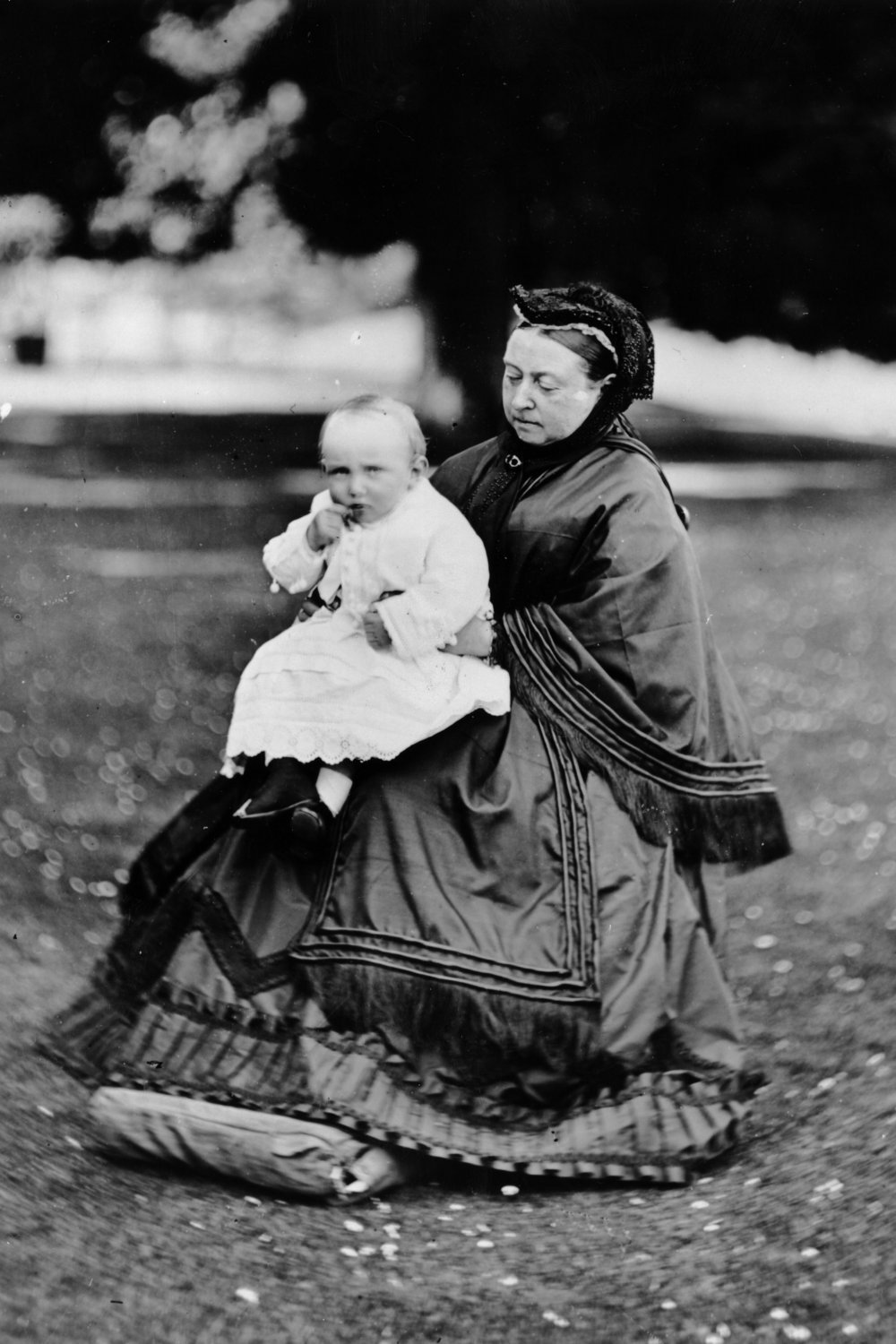|
Proclamation Of The Republic In Germany
The proclamation of the republic in Germany took place in Berlin twice on 9 November 1918, the first at the Reichstag building by Philipp Scheidemann of the Majority Social Democratic Party of Germany (MSPD) and the second a few hours later by Karl Liebknecht, the leader of the Marxism, Marxist Spartacus League, at the Berlin Palace. In the German Revolution of 1918–1919, during which Social Democrats and Spartacists were among the groups that fought to determine the country's future form of government, it was the MSPD and the ideas of the bourgeois-democratic parties that prevailed over the Spartacists and their more radical idea of a soviet-style republic. The German Empire was transformed from a monarchy into a parliamentary-democratic republic with a liberal constitution. Scheidemann's speech marked the point at which the Empire could be said to have ended and the Weimar Republic born. Background The leadership of the MSPD had seen its long-standing demands for a democra ... [...More Info...] [...Related Items...] OR: [Wikipedia] [Google] [Baidu] |
Bundesarchiv Bild 175-01448, Berlin, Reichskanzlei, Philipp Scheidemann
The German Federal Archives or Bundesarchiv (BArch) (, lit. "Federal Archive") are the national archives of Germany. They were established at the current location in Koblenz in 1952. They are subordinated to the Federal Commissioner for Culture and the Media (Claudia Roth since 2021) under the German Chancellery, and before 1998, to the Federal Ministry of the Interior. On 6 December 2008, the Archives donated 100,000 photos to the public, by making them accessible via Wikimedia Commons. History The federal archive for institutions and authorities in Germany, the first precursor to the present-day Federal Archives, was established in Potsdam, Brandenburg in 1919, a later date than in other European countries. This national archive documented German government dating from the founding of the North German Confederation in 1867. It also included material from the older German Confederation and the Imperial Chamber Court. The oldest documents in this collection dated back to the ... [...More Info...] [...Related Items...] OR: [Wikipedia] [Google] [Baidu] |
Independent Social Democratic Party Of Germany
The Independent Social Democratic Party of Germany (, USPD) was a short-lived political party in Germany during the German Empire and the Weimar Republic. The organization was established in 1917 as the result of a split of anti-war members of the Social Democratic Party of Germany (SPD), from the left of the party as well as the centre and the right. The organization attempted to chart a course between electorally oriented reformism on the one hand and Bolshevik revolutionism on the other. After several splits and mergers, the last part of the organization was terminated in 1931 through merger with the Socialist Workers' Party of Germany (SAPD). Organizational history Formation On 21 December 1915, several SPD members in the Reichstag, the German parliament, voted against the authorization of further credits to finance World War I, an incident that emphasized existing tensions between the party's leadership and the pacifists surrounding Hugo Haase and ultimately led t ... [...More Info...] [...Related Items...] OR: [Wikipedia] [Google] [Baidu] |
Alexander Von Linsingen
Alexander Adolf August Karl von Linsingen (10 February 1850 – 5 June 1935) was a German general during World War I. Military service Linsingen joined the Prussian Army in 1868 and rose to Corps Commander (II Corps (German Empire), II Corps) in 1909. He was one of the very few top German generals not to have served on the general staff. At the beginning of World War I, Linsingen was a Corps commander in the First Battle of the Marne. Transferred to the Eastern Front where German and Austrian armies were threatened by a Russian offensive in Galicia (Central Europe), Galicia, Linsingen took command of South Army (German Empire), South Army (1915). He defeated the Russian armies in the Battle of Stryi in 1915, capturing 60,000 Russian prisoners. He was awarded the Pour le Mérite on 14 May 1915 and the Oakleaves (for a second award) on 3 July 1915. In 1915, he took command of the Army of the Bug and was concurrently commander of Heeresgruppe Linsingen. In June 1916, his Army ... [...More Info...] [...Related Items...] OR: [Wikipedia] [Google] [Baidu] |
Brandenburg
Brandenburg, officially the State of Brandenburg, is a States of Germany, state in northeastern Germany. Brandenburg borders Poland and the states of Berlin, Mecklenburg-Vorpommern, Lower Saxony, Saxony-Anhalt, and Saxony. It is the List of German states by area, fifth-largest German state by area and the List of German states by population, tenth-most populous, with 2.5 million residents. Potsdam is the state capital and largest city. Other major towns are Cottbus, Brandenburg an der Havel and Frankfurt (Oder). Brandenburg surrounds the national capital and city-state of Berlin. Together they form the Berlin/Brandenburg Metropolitan Region, the third-largest Metropolitan regions in Germany, metropolitan area in Germany. There was Fusion of Berlin and Brandenburg#1996 fusion attempt, an unsuccessful attempt to unify both states in 1996, however the states still cooperate on many matters. Brandenburg originated in the Northern March in the 900s AD, from areas conquered from the ... [...More Info...] [...Related Items...] OR: [Wikipedia] [Google] [Baidu] |
Hohenzollerns
The House of Hohenzollern (, ; , ; ) is a formerly royal (and from 1871 to 1918, imperial) German dynasty whose members were variously princes, electors, kings and emperors of Hohenzollern, Brandenburg, Prussia, the German Empire, and Romania. The family came from the area around the town of Hechingen in Swabia during the late 11th century and took their name from Hohenzollern Castle. The first ancestors of the Hohenzollerns were mentioned in 1061. The Hohenzollern family split into two branches, the Catholic Swabian branch and the Protestant Franconian branch,''Genealogisches Handbuch des Adels, Fürstliche Häuser'' XIX. "Haus Hohenzollern". C.A. Starke Verlag, 2011, pp. 30–33. . which ruled the Burgraviate of Nuremberg and later became the Brandenburg-Prussian branch. The Swabian branch ruled the principalities of Hohenzollern-Hechingen and Hohenzollern-Sigmaringen until 1849, and also ruled Romania from 1866 to 1947. Members of the Franconian branch became Margrave of ... [...More Info...] [...Related Items...] OR: [Wikipedia] [Google] [Baidu] |
Vossische Zeitung
The (''Voss's Newspaper'') was a nationally known Berlin newspaper that represented the interests of the liberal middle class. It was also generally regarded as Germany's national newspaper of record. In the Berlin press it held a special role due to the fact that by way of its direct predecessors it was the oldest newspaper in the city. The name went back to Christian Friedrich Voss, who was its owner from 1751 to 1795, but became its official name only after 1911. It ceased publication in 1934 under pressure from the Nazi state. Beginnings in Berlin In the early 17th century Christoff Frischmann collected and passed on to interested parties the news he received as postmaster of the Electorate of Brandenburg. Over time he systematized his news gathering, and he was ultimately given a mandate to maintain contacts throughout the "Holy Roman Empire of the German Nation" and to collect news from all important locations. His first printed newspapers came out in 1617 and appeared ... [...More Info...] [...Related Items...] OR: [Wikipedia] [Google] [Baidu] |
Wilhelmstrasse
Wilhelmstraße, or Wilhelmstrasse (see ß; ; ) is a major thoroughfare in the central Mitte and Kreuzberg districts of Berlin, Germany. Until 1945, it was recognised as the centre of the government, first of the Kingdom of Prussia, and later of the unified German Reich, housing in particular the Reich Chancellery and the Foreign Office. The street's name was thus also frequently used as a metonym for overall German governmental administration: much as the term "Whitehall" is often used to signify the British governmental administration as a whole. In English, "the Wilhelmstrasse" usually referred to the German Foreign Office.See ''Daisy, Princess of Pless'' by Herself, p. 63. ''OED'', "Wilhelmstrasse" Course The Wilhelmstraße runs south from the Spree riverside through the historic Dorotheenstadt quarter to the Unter den Linden boulevard near Pariser Platz and Brandenburg Gate, where it takes on a line slightly east of south through adjacent Friedrichstadt, until i ... [...More Info...] [...Related Items...] OR: [Wikipedia] [Google] [Baidu] |
Vorwärts
( ; "Forward") is a newspaper published by the Social Democratic Party of Germany (SPD). Founded in 1876, it was the central organ of the SPD for many decades. Following the party's Halle Congress (1891), it was published daily as the successor of ''Berliner Volksblatt'', founded in 1884. Today, it is published every two months, mailed to all SPD members. History The paper was founded as a merger of the Eisenacher's '' Der Volksstaat'' and the Lasalleans '' Der Sozialdemokrat'' (General German Workers' Association). Its first editors were Wilhelm Hasenclever and Wilhelm Liebknecht. Friedrich Engels and Kurt Tucholsky both wrote for . It backed the Russian Marxist economists and then, after the split in the Party, the Mensheviks. It published articles by Leon Trotsky, but would not publish any by Vladimir Lenin. During the First World War, remained in favour of pacifism and neutrality and opposed the SPD's ''Burgfriedenspolitik'' until 1916 when, sometime after Rudolf Hil ... [...More Info...] [...Related Items...] OR: [Wikipedia] [Google] [Baidu] |
Bundesarchiv Bild 146-1979-122-29A, Philipp Scheidemann
The German Federal Archives or Bundesarchiv (BArch) (, lit. "Federal Archive") are the national archives of Germany. They were established at the current location in Koblenz in 1952. They are subordinated to the Federal Commissioner for Culture and the Media (Claudia Roth since 2021) under the German Chancellery, and before 1998, to the Federal Ministry of the Interior. On 6 December 2008, the Archives donated 100,000 photos to the public, by making them accessible via Wikimedia Commons. History The federal archive for institutions and authorities in Germany, the first precursor to the present-day Federal Archives, was established in Potsdam, Brandenburg in 1919, a later date than in other European countries. This national archive documented German government dating from the founding of the North German Confederation in 1867. It also included material from the older German Confederation and the Imperial Chamber Court. The oldest documents in this collection dated back to the ... [...More Info...] [...Related Items...] OR: [Wikipedia] [Google] [Baidu] |
Reichsverweser
A ''Reichsverweser'' () or imperial regent represented a monarch when there was a vacancy in the throne, such as during a prolonged absence or in the period between the monarch's death and the accession of a successor. The term comes from the Old High German and means "for or in the place of a person". The plural form is the same as the singular. In the Holy Roman Empire, ''Reichsverweser'' were used periodically, but after its dissolution in 1806, the position was occupied only for one relatively short period during the German revolutions of 1848–1849. Although there were discussions about naming a ''Reichsverweser'' at the end of World War I and during the Nazi era, none was ever appointed. Positions similar to ''Reichsverweser'' have been used in Hungary, where they are called , in Finland () and in Sweden (). Holy Roman Empire In the Holy Roman Empire's German and Italian territories, regents were called imperial vicars (). For Germany, the Golden Bull of 1356 ... [...More Info...] [...Related Items...] OR: [Wikipedia] [Google] [Baidu] |
Crown Prince Wilhelm
Wilhelm, German Crown Prince, Crown Prince of Prussia (Friedrich Wilhelm Victor August Ernst; 6 May 1882 – 20 July 1951) was the eldest child of the last German emperor, Wilhelm II, and his consort Augusta Victoria of Schleswig-Holstein, and thus a great-grandson of Queen Victoria, and distant cousin to many British royals, such as Queen Elizabeth II and King Charles III. As Emperor Wilhelm's heir, he was the last Crown Prince of the German Empire and the Kingdom of Prussia, until the abolition of the monarchy. Wilhelm became crown prince at the age of six in 1888, when his grandfather Frederick III died and his father became emperor. He was crown prince for 30 years until the fall of the empire on 9 November 1918. During World War I, he commanded the 5th Army from 1914 to 1916 and was commander of the Army Group German Crown Prince for the remainder of the war. After his return to Germany in 1923, he fought the Weimar Republic and campaigned for the reintroduction of t ... [...More Info...] [...Related Items...] OR: [Wikipedia] [Google] [Baidu] |
Prussia
Prussia (; ; Old Prussian: ''Prūsija'') was a Germans, German state centred on the North European Plain that originated from the 1525 secularization of the Prussia (region), Prussian part of the State of the Teutonic Order. For centuries, the House of Hohenzollern ruled Prussia, expanding its size with the Prussian Army. Prussia, with its capital at Königsberg and then, when it became the Kingdom of Prussia in 1701, History of Berlin, Berlin, decisively shaped the history of Germany. Prussia formed the German Empire when it united the German states in 1871. It was ''de facto'' dissolved by 1932 Prussian coup d'état, an emergency decree transferring powers of the Prussian government to German Chancellor Franz von Papen in 1932 and ''de jure'' by Abolition of Prussia, an Allied decree in 1947. The name ''Prussia'' derives from the Old Prussians who were conquered by the Teutonic Knightsan organized Catholic medieval Military order (religious society), military order of Pru ... [...More Info...] [...Related Items...] OR: [Wikipedia] [Google] [Baidu] |





